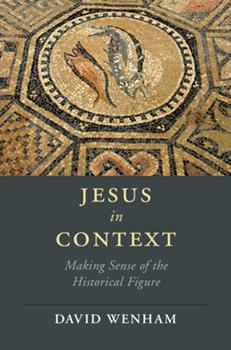Q. Jesus’ concern for the least, the last, and the lost has sometimes been interpreted to mean that he endorsed some form of communism (in some liberation theological texts), not merely communalism. The problem with that notion is severalfold: 1) Jesus is not endorsing a governmental program of the redistribution of goods, he is calling his own disciples to follow what the OT already said about taking care of the widows, the orphans and the poor, and he believes he is bringing in a saving activity which reverses things—the least, the last, and the lost become the most the first and the found. Jesus appears to believe that how one treats the most marginalized in society reflects one’s core values and whether one actually has the compassion Jesus himself had for such folk; 2) it seems clear from Acts 2-6 that Jesus’ teaching was understood to mean that the earliest community of Christ followers were to make sure no one in the community was in need of food, shelter, and clothing, especially the widows (perhaps because Christ followers were no longer eligible for the Jerusalem dole for such people), but note that Peter says that the fault of Ananias and Sapphira did not involve that they kept some of their resources when they sold property, it was that they lied to the Holy Spirit about what they had done. Peter even says ‘was it not still yours after you sold the property’. This does not sound like ‘the community owns all your property, so give it all to the leaders for the central store house’. At the same time, there seems to be a clear theology that the earth is the Lord’s and the fullness thereof, hence it’s all God’s property and we are just its stewards, accountable to God for what we do with it (see the sermon of John Wesley ‘On the Use of Money’). Do you think that the famous saying ‘render unto Caesar what is Caesar’s and unto God what is God’s is ironic, since it all ultimately belongs to God? It does not seem to be revolutionary in the sense of ‘don’t pay your taxes’. Or did Jesus think that his disciples didn’t have an obligation to pay such taxes, but for the sake of a good witness it should be done? In short, what is Jesus’ remedy for the poverty of the poor when it comes to his own followers? I don’t deny that Jesus had a special emphasis on the marginalized and redeeming them, it was not his whole focus. Zacchaeus was not poor, and yet salvation came to his house when he accepted the obligation to make generous compensation and to remedy any unjust taking of funds. How do we parse what Jesus says about such things?
A. Jesus’ saying regarding taxes to Caesar is clearly brilliant in that he avoids the trap that is being set for him: will he take a pro- or anti-Caesar line? But I don’t think it was just clever avoidance of an embarrassing issue, but a substantial saying affirming that the state does have a part in God’s ordering of society (compare Paul in Romans 13), but only under and subject to God’s supreme authority. On the other hand, I do think that Jesus was more radical than we like to think when it comes to questions of money, wealth and poverty. We, like a lot of Christians throughout the ages, tend to ignore or play down sayings like Luke 14:33 ‘None of you can become my disciple if you do not give up all your possessions’ and Acts 4:32 ‘No one claimed private ownership of any possessions, but everything they owned was held in common’ (NRSV translation). I suspect that Luke was writing for a relatively wealthy readership – people like Theophilus – and he therefore brings out the challenge of Jesus in relation to material things even more clearly than the other gospels. That includes his choice of parables, eg the parable about the well-to-do man investing in a comfortable retirement, and the parable about the rich man living in his comfortable world and neglecting the poor at his gate (Luke 12 and 16). Jesus’ kingdom message was hugely exciting, but hugely challenging: he was not calling for benign philanthropic capitalism but for kingdom of God living ‘on earth as in heaven’. That does not mean that all his followers became itinerants literally leaving everything and following Jesus on the road; indeed he and his disciples benefitted from the hospitality of people like Mary, Martha and Lazarus. Scholars may be right that Jesus had two categories of followers – the itinerants who left everything and others who continued to live in their homes; but I assume that these non-itinerants took sharing everything seriously, and that the distinctive ‘loving one another’ which Jesus advocated was not just a theory, but something very practical, exciting and demanding (hence the failures of Ananias and Sapphira to live that way and most of us Christians throughout the ages.) In terms of what that might mean in the modern world, I have recently enjoyed the little book Jubilee and Social Justice by Kim Tan.













